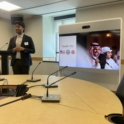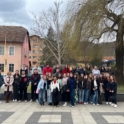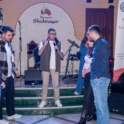Abdulaziz reflects on the highlights from serving as a mentor for CEW.
STORIES
YES Alumni Grant: Tech for Her Future
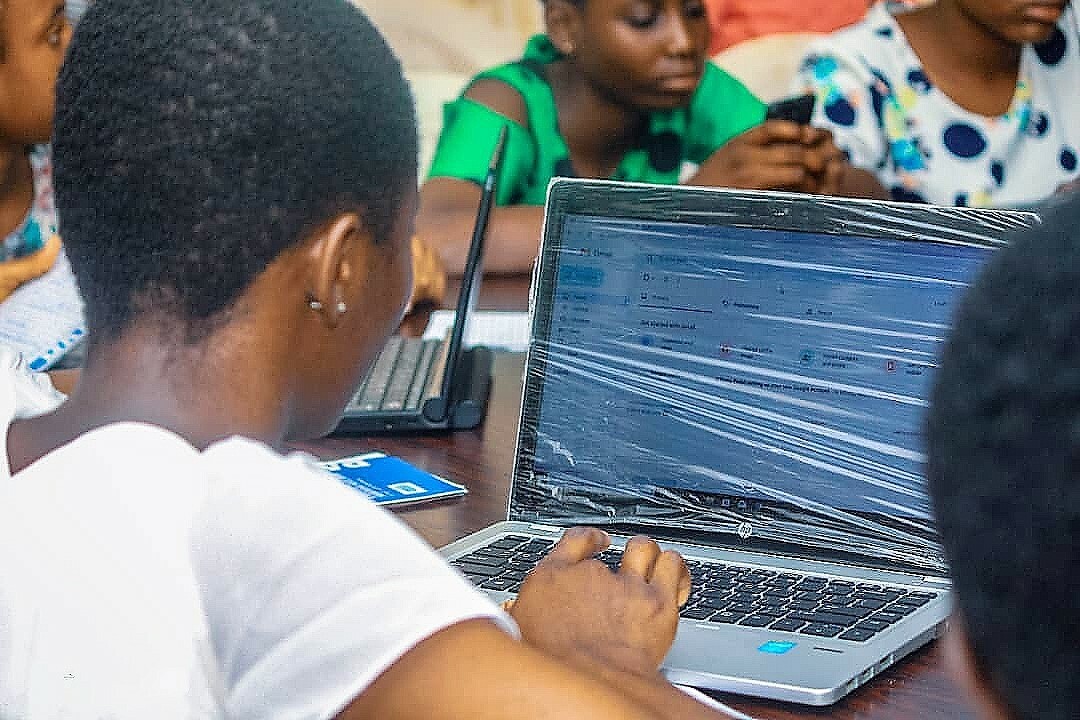
By Ochanya Okoh (YES 2011-2012, Nigeria, placed by World Link in Williamsburg, IA)
I had never heard of Williamsburg or even Iowa before being selected to take part in the YES program. Like most people outside the U.S., I had only heard about the places I saw in movies – Washington D.C., New York, California – so I was unsure of what to expect. I was pleasantly surprised because Iowa felt like the perfect place for me. My host family, the Dovres, welcomed me with smiles and hugs, and it reassured me that I was in for an experience that was going to be full of warm hugs and love. My entire time in the U.S. can be summed up in three words: love, firsts, and learning.
LOVE: I was surrounded by so much love from my host family, friends at school, the congregation at church, and the entire Williamsburg community. Everyone was warm, eager to learn about my country, and answer any questions I had about America or the culture.
FIRSTS: I experienced a lot of “firsts” in the U.S. – my first snow, first Halloween haunted house, which I wouldn’t do again! I was so scared I thought my heart was going to fail me. But you should try it because you only get to be an exchange student once. I had my first Thanksgiving, prom, and so many other beautiful firsts that I could not possibly begin to fit into this article.
LEARNING: I learned how to collaborate and work on a team, and this started from the recruitment process in Nigeria and continued through pre-departure orientation, orientation in D.C. and throughout my entire program. It was the core of my experience while on program because I also learned a lot from attending an American high school. I took really interesting courses and I found biotechnical engineering fascinating. We all had access to computers and everyone knew how to use them. This was surprising to me because my school back in Nigeria was an excellent school by most standards, but we did not have access to computers or know how to use them. I also learned the joys of volunteering and organizing community service projects to solve problems I identified in my community. I realized it didn’t matter how young I was, I could make change.
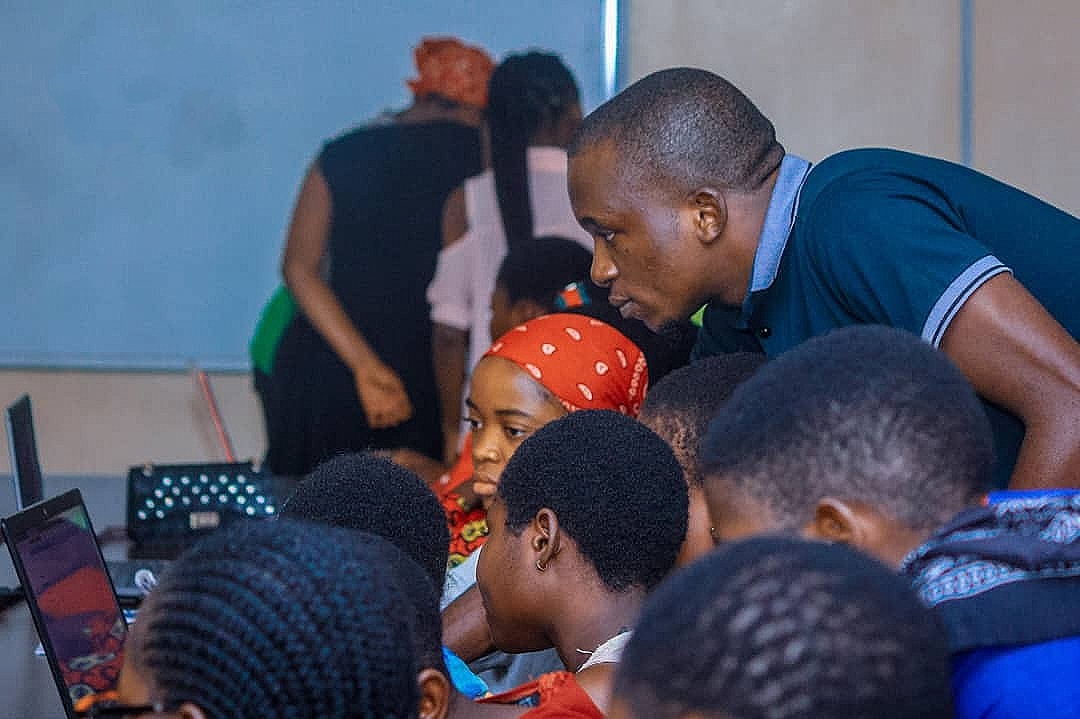
My realization of the technology gap between my American and Nigerian high schools was my newfound knowledge of planning and executing community service projects, led me to apply for a YES Alumni Grant for my project Tech for Her Future. I wanted to provide young women with digital skills needed to thrive in their future careers. The project focused on female participants because studies show that in developing countries females have less access to and knowledge of technology and the internet than males do.
With a project team of four alumni and three non-alumni volunteers, I led Tech for Her Future in August and September in Makurdi, Benue State. The five-week program provided 80 low-income high school girls with digital skills and inspired them by highlighting career options in the technology field. We selected participants from schools across the Makurdi Local Government area with permission from the Ministry of Education. The training was held in the Benue State E-Learning and Virtual Center (BESEVIC), a state government training center. The project consisted of digital skills training, including basic computer skills, Microsoft tools, web design, and graphic design. By the end of the program, all the girls had email addresses and accounts on Nigeria Learning Passport, an online learning platform.
As part of the curriculum, we also included movie and mentorship sessions. On movie days, participants watched Queen of Katwe, Hidden Figures, and other documentaries featuring women in technology. We also invited women working in the field of technology to speak to participants so they could meet and interact with these role models. The goal was for participants to realize they can do anything they put their minds to and that the field of technology does not have to continue to be male dominated.
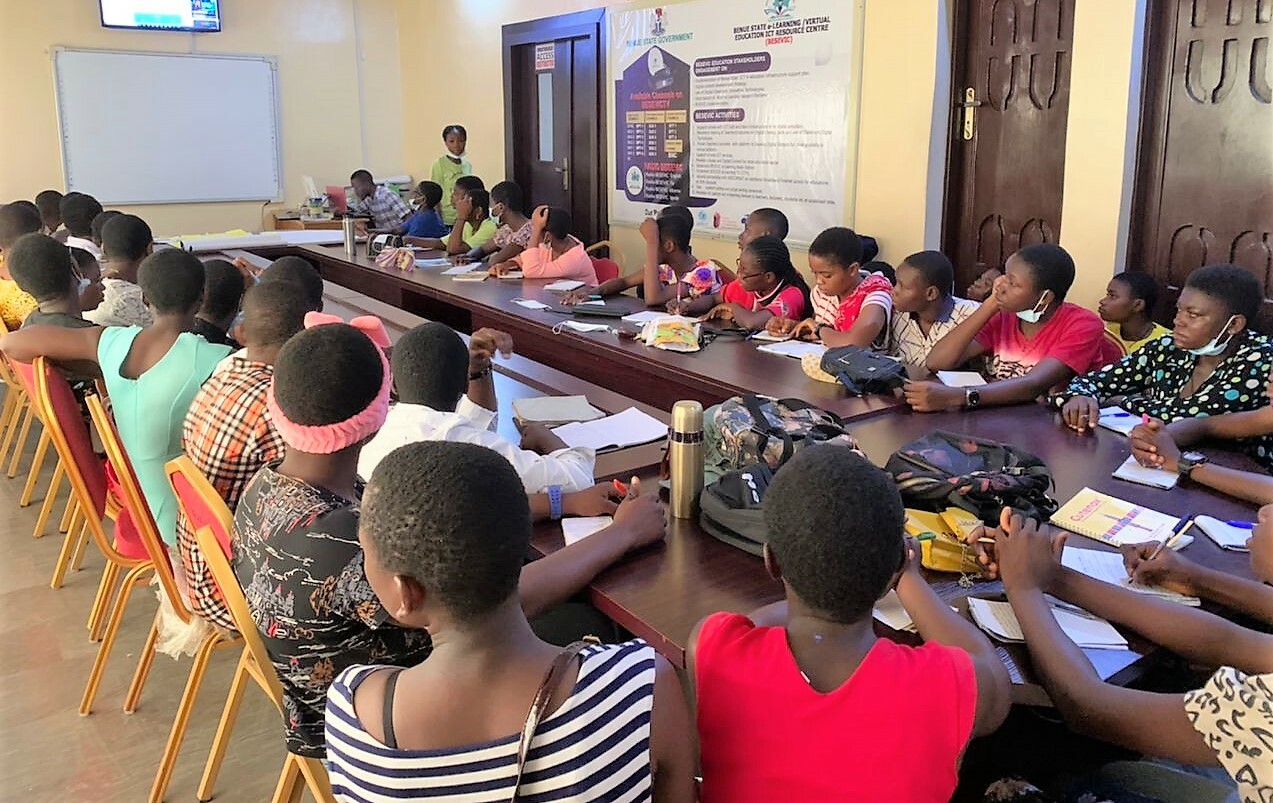
After the training, I received emails from all the participants telling me how much the program has affected their lives and how they intend to share this knowledge with their friends at school. The girls also noted it was wonderful to make new friends from different schools and communities as a result of participating in the program.
I am excited for the future of these young women and I look forward to seeing what they do in the with the skills they have learned. Several innovation hubs have graciously offered some participants internships when they finish high school. BESEVIC has also opened their doors to the participants to continue learning. I hope during the next edition of this program, our facilitators will be participants from the first cohort.
I cannot overemphasize the importance of the YES program to my life and my community because we have continued to reap the rewards of the program and the support of the U.S. Department of State Bureau of Educational and Cultural Affairs. It takes a village, so I am also grateful to the Benue State Ministry of Education, the David Wuam Gambe Foundation, and Skill Plug Africa for all of their support.


